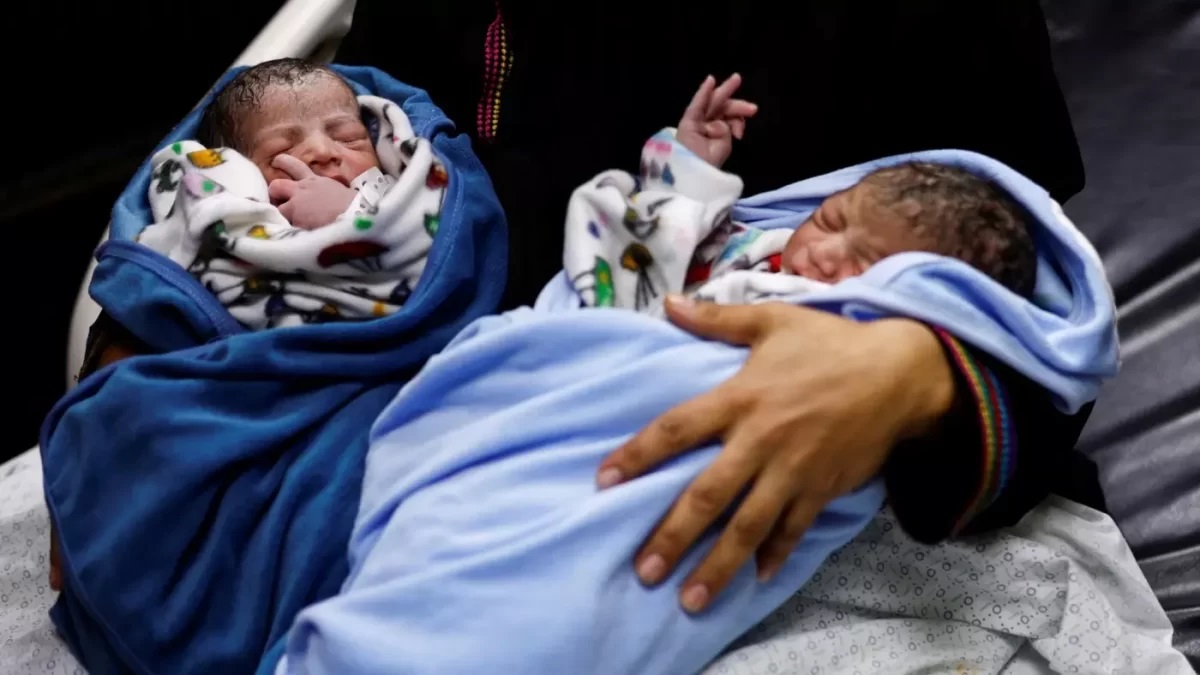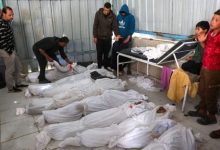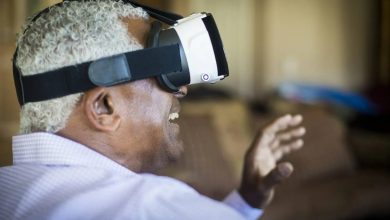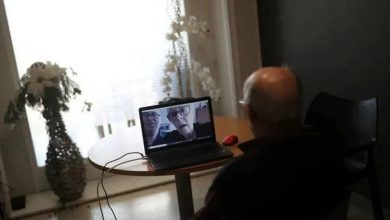Emergency home birth
For Aya, the sister of “Noor,” there was no option but to give birth at her family’s home, where she had sought refuge early in the war.
Nada Nabil, 31, the wife’s sister, told Middle East Eye: “At around 1 am, Aya started experiencing labor pains, which were so intense that she couldn’t bear them. Within half an hour, the baby’s head began to appear, and we had to act immediately.”
She added, “Of course, we couldn’t even think about going to the hospital because it would be like a death sentence for Aya, the baby, and anyone accompanying her. The shelling was intense, and we could hear Israeli tanks moving in the nearby areas.”
Although “Noor” had assisted doctors in delivering babies and performing cesarean sections in the past, she had never done it alone. Nada said, “But she decided to take on this task, or else her sister and the baby would die.”
One of the crucial issues leading to such a procedure at home at night is the lack of electricity.
Israel cut off all electricity and fuel supplies to the Gaza Strip since October 7th last year. Since then, Palestinians have relied on candlelight, battery-operated LED lamps, and solar panels. However, none of these were available in Aya’s family home.
Cinematic Scene
Nada recalls, “During the war, we got used to sitting in the dark, sometimes with a small candle or LED light. But this time, we couldn’t rely on candlelight, and even though our phone batteries were about to run out, we all turned them on. The flashlights on our mobile phones helped Noor see properly.”
Aya, her husband, and their two children left their home on Sand Street in the heart of Gaza City during the first week of the war, seeking refuge in her family’s house in the Sahaba neighborhood in eastern Gaza.
The house, with multiple floors and apartments, welcomed the extended family.
During times of war, families in Gaza tend to gather in one place, seeking protection and comfort. There is a common desire to live together or die together.
Nada described the birth of the latest family member as something out of a cinematic scene, transcending reality. She says, “Women directed their flashlights toward Aya, and men outside were praying for her safety. Everyone in the building, all the displaced in every apartment, were awake, chanting ‘Ya Rab, Ya Rab’ [Oh God, Oh God].”
She adds, “The sounds of the bombings were very loud, mixed with Aya’s cries as she struggled through childbirth, and the voices of her relatives and other displaced people praying and urging her to stay strong. Everything was surreal. Regardless of how descriptive I am, no one can imagine the scene.”
No Medical Equipment
The Israeli occupation forces destroyed 52 medical facilities and 56 ambulances in Gaza, according to the Palestinian Ministry of Health, killing at least 283 healthcare workers.
Aya’s family did not anticipate the rapid birth, so emergency plans were not in place. Without medical equipment, they had to rely on household items they found at home.
Nada says, “Time was running out, and we feared for the baby’s life as Noor and Aya struggled to deliver. Prayers were rising, and I held my mobile phone with the flashlight, reading the Quran and crying.”
She adds, “After a few minutes, the baby girl was finally born, and as soon as she came out, Aya and everyone burst into tears. It was a moment of relief for all of us. Noor embraced Aya tightly and kissed her on the forehead, and the displaced people were cheering and thanking God.”
She noted that they managed with paper scissors and sterilized clothespins, but when it came to childbirth, there was nothing suitable at hand to deal with it.
Noor had to provide postpartum care with her bare hands, cleaning Aya’s uterus and manually extracting the placenta.
The next morning, they went to the Sahaba Complex to check on Aya and the baby, and both were in excellent condition.







